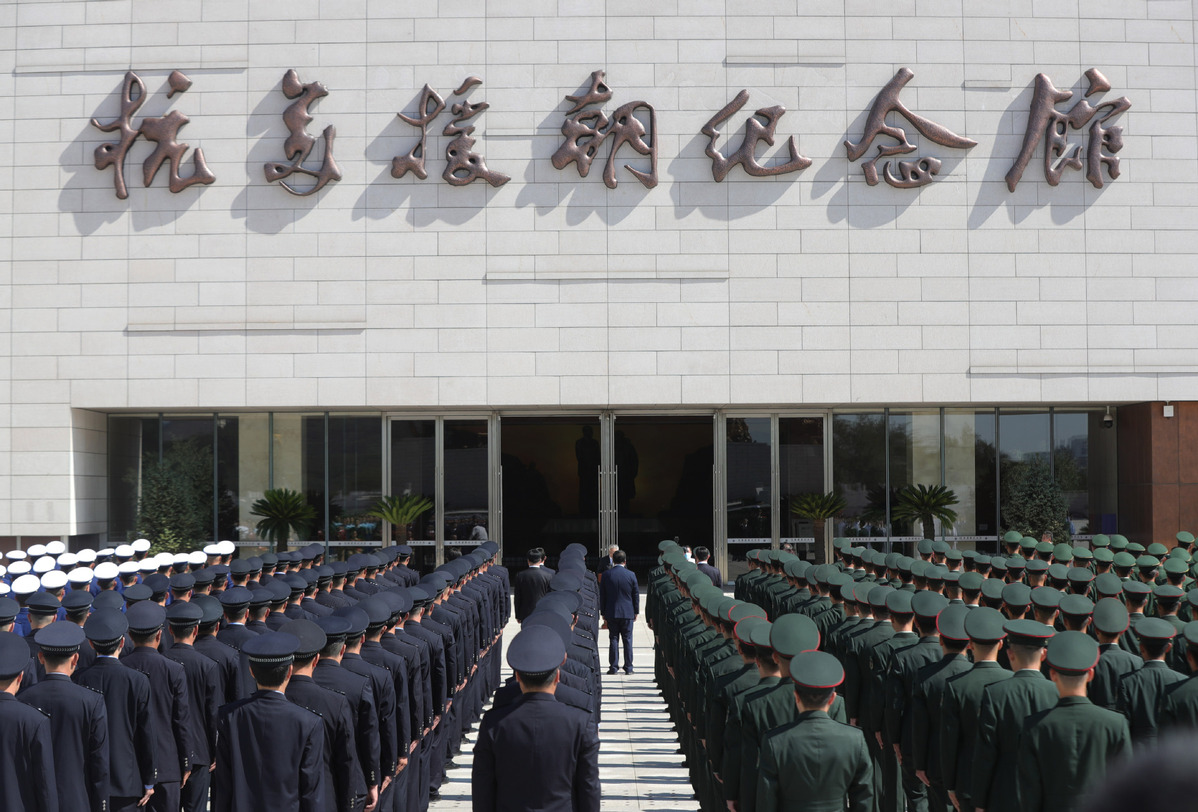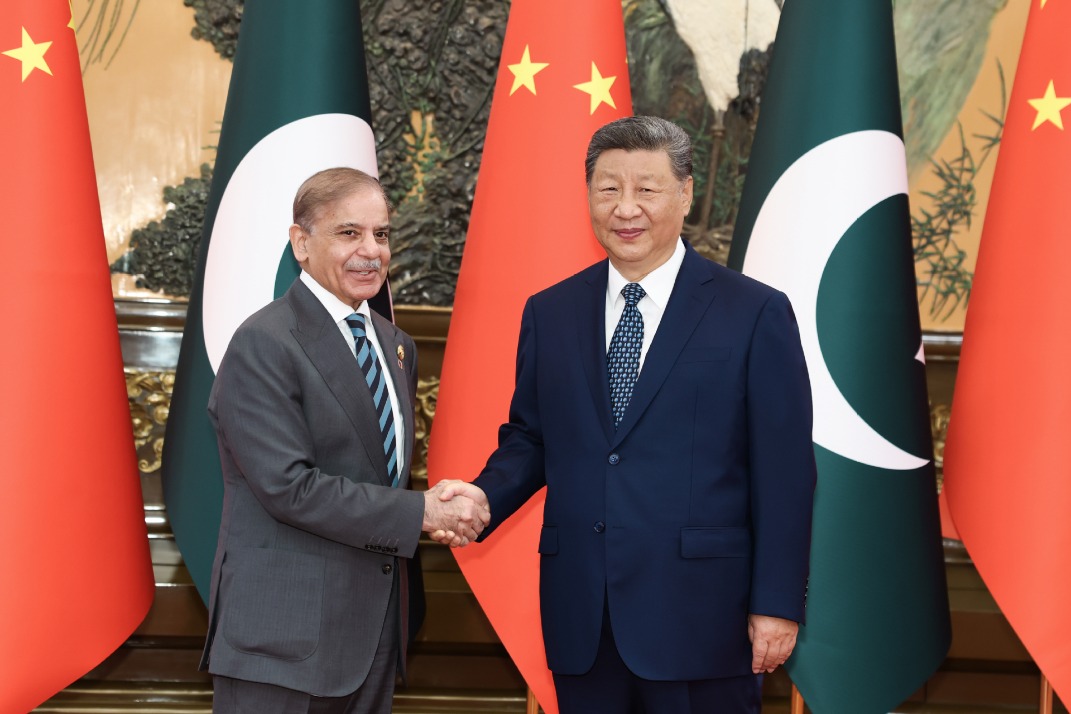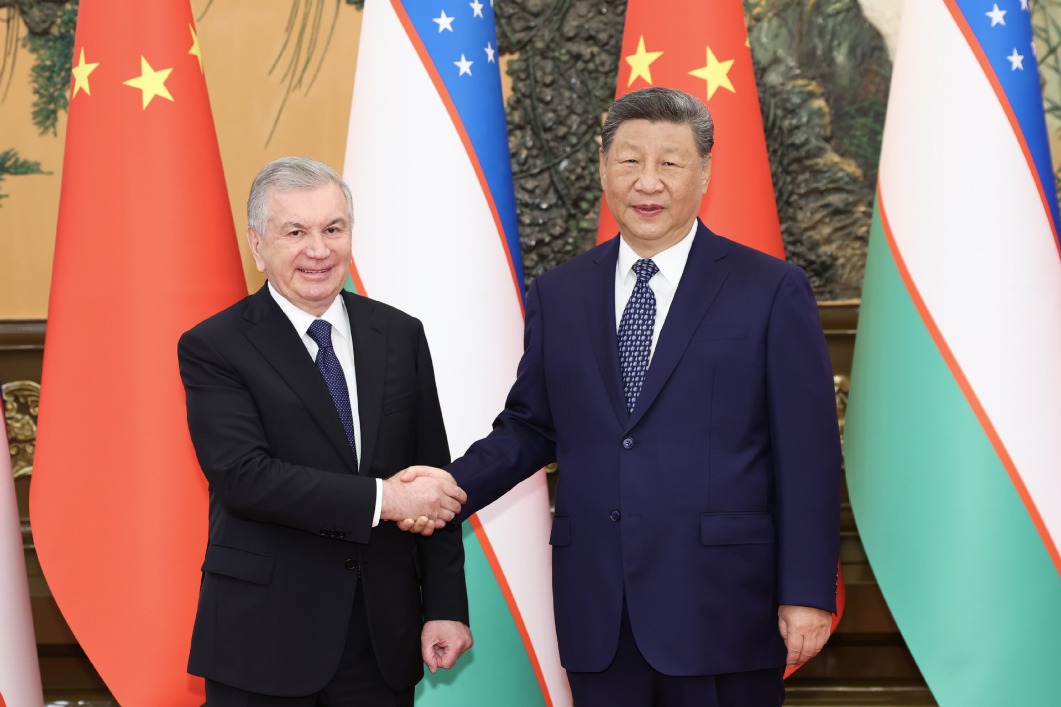Memorial hall commemorating Korean War reopens in China
Xinhua | Updated: 2020-09-19 15:50

SHENYANG - A memorial hall commemorating the War to Resist US Aggression and Aid Korea (1950-1953) reopened on Saturday in Northeast China's Liaoning province.
The renovated and expanded Memorial Hall of the War to Resist US Aggression and Aid Korea in the border city of Dandong is the only museum in China featuring an exhibition of the complete history of the participation of the Chinese People's Volunteers (CPV) in the war.
Covering a total area of 182,000 square meters, it consists of an exhibition hall, a memorial tower, a national defense education park, and a panorama hall featuring a panoramic painting of 132.15 meters long and 16 meters tall, which depicts the famous battle of the Chongchon River in the war.
The floor area of the exhibition hall has been expanded from the original 5,400 square meters to 23,845 square meters. During the refurbishment, the staff of the memorial hall solicited exhibition items from around the world, enriching the displayed items from just over 700 to more than 1,600 now, said Gong Shaoshan, deputy curator of the memorial hall.

First established in 1958 and moved to the current site in 1993, the memorial hall closed in late 2014 and has undergone massive refurbishment and expansion since then. Before it was closed, the new site had received 12 million visits.
An American-style rifle that CPV commander-in-chief Peng Dehuai carried back from the battlefield, letters from CPV soldiers, and a uniform of the then US army are among the displayed items donated by veterans or their relatives, said Gong.
In the exhibition hall, the CPV's unfavorable infantry equipment, uniforms, and food, mainly parched flour, are displayed. A chart listing the number of heavy weapons of the two sides has drawn many visitors. Compared with their foes, the CPV's disadvantage in weaponry was astounding.
According to the chart, at the beginning of the war, a division of the US-led army with some 17,000 to 25,000 soldiers was equipped with 149 tanks, 35 armored vehicles, and 72 howitzers, while an infantry army of the CPV with 50,000 soldiers had zero tanks, zero armored vehicles, and zero howitzers.
"Despite the backward weapons, we made an ultimate victory, because we were not afraid of shedding blood or dying while bearing in mind the fighting spirit of defending our motherland," said Guo Guolian, 87, a CPV veteran who visited the memorial hall on Saturday morning.
Only eight months after the founding of the People's Republic of China, the Korean War broke out in June 1950, which soon reached the Yalu River that borders China, and wreaked havoc in Dandong, formerly called Andong.
"Within a single day on Aug 27, 1950, combat aircraft were found entering the Chinese border five times, bombing an airport and a railway station, and killing civilians," said Zhu Rui, a guide at the memorial hall.
On Oct 19, 1950, as requested by the Democratic People's Republic of Korea (DPRK), CPV forces crossed the Yalu River to aid the DPRK's fight there until a truce was signed in 1953. A total of 2.9 million CPV soldiers entered the battlefield, and 197,653 of them sacrificed their lives in the war.
"The soldiers were just at our age when they fought on the battleground. To protect our motherland, they shed their blood and devoted their lives. They are true heroes," said Zhou Hongying, 17, a visitor from a local vocational school.
"We should remember the past and cherish the hard-won peace," she said.
To mark the 70th anniversary of their participation in the war, China will bestow memorial medals upon CPV veterans this year. The medals are to be presented in the name of the Communist Party of China Central Committee, the State Council, and the Central Military Commission.
- China to honor Korean War veterans with medals
- Filming begins on upcoming Korean War TV epic
- Reviving the Cold War is anachronistic - Vice-Foreign Minister Le Yucheng's exclusive interview with Guancha.cn
- CPC guidance leads nation to prosperity
- Respect history, look to the future and firmly safeguard and stabilize China-US relations
























